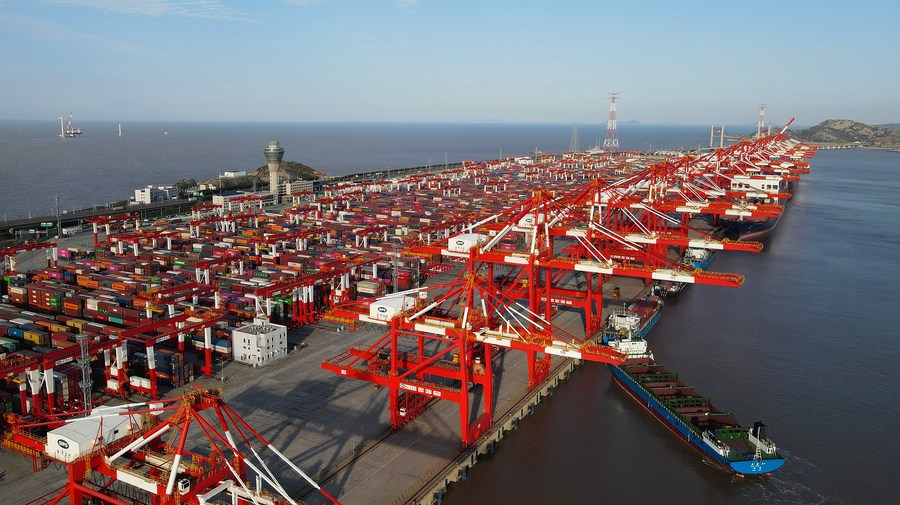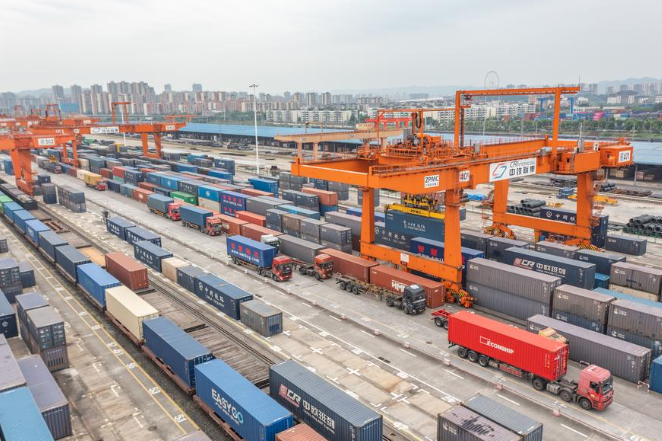Political ploys gumming up supply chains
Protectionism more to blame for trade disruptions than pandemic, forum told


Protectionism more to blame for trade disruptions than pandemic, forum told
The United States' protectionist policies and hostile attitude toward China are contributing more to the supply chain disruptions that have been hobbling industries worldwide than the consequences of the pandemic, a forum has been told.
Constantine Karayannopoulos, president and CEO of Neo Performance Materials, was among the speakers examining the causes of the trade bottlenecks at the event hosted by the Canada China Business Council recently.
"Supply chains are very rational entities. However, we're now in a very odd period," said Karayannopoulos, whose company makes metal-based functional materials. "On top of that, we have a geopolitical environment where the world is being remade, and it's inevitable that supply chains will change."
Another speaker, Flavio Volpe, the president of Canada's Automotive Parts Manufacturers' Association, took direct aim at the US.
"Washington's protectionist and bipartisan support for using whatever leverage to encircle China with trading partners for the US...is going to be the dynamic that dictates the way we do business in automotive, given the critical shift to electric and connected vehicles and the need for raw materials and resources," Volpe told the forum.
The surging price of critical raw materials has squeezed manufacturers around the world. In a recent InvestorIntel interview, Karayannopoulos highlighted the insufficient supply of rare earth and other critical materials required for the clean-energy transition.
Like Karayannopoulos, Volpe is disturbed by the trend he is seeing.
His manufacturers association has spent the past 25 to 30 years with major partners around the world pushing for globalization that was aided by the advent of North American Free Trade Agreement, or NAFTA, in 1994 and then the inclusion of China in the World Trade Organization in 2000. Canada's automotive industry benefited from both developments.
While rising labor costs have prompted companies to diversify outside China in recent years, the absence of acceptable substitutes and China's market dynamism have made it logical for many companies to keep making and sourcing goods there, the forum was told. However, the pandemic has heightened sensitivity to supply chains, particularly when the flow of goods can be disrupted by politics.
Against this backdrop, speakers at the forum said that politics and geopolitical issues are the factors most affecting supply chain and investment decisions-rather than the pandemic.
With a recovery underway in economies around the world, the supply chain snags have hit industries encompassing semiconductors, raw materials, and many more.
A shortage of shipping containers and warehouse capacity has led to higher prices and massive delays at ports and logistics hubs.
































